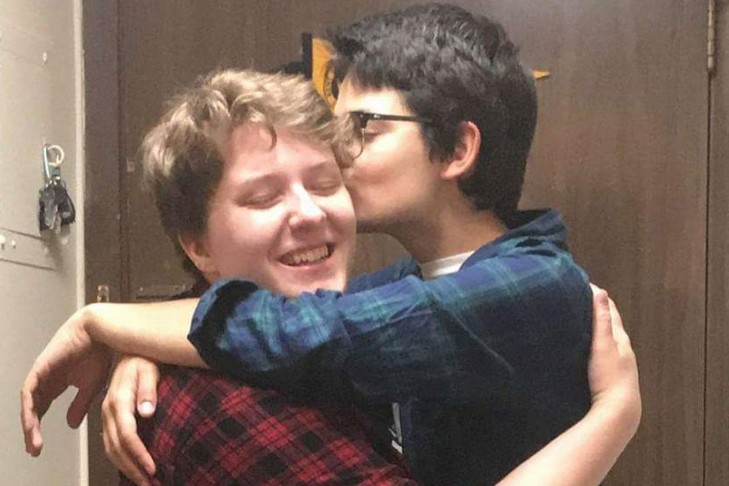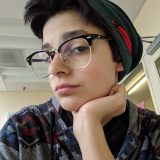As a mouthy, bookish kid growing up in an overwhelmingly Christian suburb in Ohio, my Jewish future could not have been further from my mind. I had my bat mitzvah a year late in a synagogue full of confused Protestant middle-schoolers and fielded constant church requests and damnations with a papal wave. The concept of my “future husband” as detailed in our abstinence-only health class was nebulous at best. There were books (devoid of Jewish characters) to read and confusing social interactions to dissect. My future, at least at that time, was college-driven and career-oriented, with my beloved but squelched religion skirting the edges. My adult self was more than a stranger; she existed in an entirely different plane of existence.
This, of course, changed when I became her. I left my homogenous suburb for the slightly more diverse Kent State University. I became belatedly involved with Hillel. I started reading Jewish authors, expanding my experience outside the Shoah and blink-and-you-miss-it representation. And, most importantly, I met Olivia.
It turned out that the reason my “future husband” never took shape in my mind is because I was pretty gay. I’d been so busy with school and boys and writing that I hadn’t examined this part of me, squished down in me by the environment in which I grew up. When I extracted my Judaism, the rest of me came with it.
Olivia and I met in an LGBT literature class my junior year and we became fast friends. I thought I knew what love felt like, having ostensibly been in love with a handful of men, but my feelings for Olivia incinerated them from orbit. We were inseparable and though she was raised without religion, she and I attended several Hillel services, poring over the same prayer book and following the transliteration one line at a time.
She approached me the spring of my senior year, heart in hands, and described a connection with the Jewish faith that made me teary. I gifted her my first magen David (Star of David) and promised to support her conversion in any way possible. For the first time, that Jewish future felt close, even if we never became anything other than friends. I’d spent two years in rapturous devotion, the two of us skirting our feelings like nervous birds, until we came together in a clash the summer after I graduated. I was moving 600 miles away to Boston, we’d been together for approximately a month-and-a-half and staying together would mean two full years of long distance.
Friends dissuaded us. I’d only been “out” for a handful of months, they said. Didn’t I want to start over in a new city, live untethered as myself for the first time?
“I’m going to marry her,” I said, even as I packed my cat and plants and drove 13 hours to a closet bedroom in a tiny apartment. “I don’t care how long we’re apart.”
After I left, Olivia kept me updated on her conversion through our nightly phone calls. She read voraciously, devouring books on Jewish theory and philosophy. Her rabbi went on sabbatical and she was left adrift until her advisor, also gay and also a convert, directed her to Rabbi Josh of Temple Israel in Akron. She participated in Challah for Hunger, perfecting her six-strand braid, and we commiserated over fasting four states away. She became my anchor not only to the Jewish community but to that mythical Jewish future I’d been too afraid to imagine. We daydreamed about our home, full of plants and books and color-coded cutting boards. She painted a mezuzah cover for me and I rescued my old tzedakah box from its faded velvet case. Bit by bit, we sculpted the life of community and love we’d both unconsciously craved for so long.
On Feb. 21, 2019, I stepped into my flats and she stepped into her loafers and we entered the community mikvah in Cleveland Heights to complete her conversion. She had worked so hard and had so much love for the religion. Even though I’d been Jewish my whole life, I never felt closer to the religion than as we spoke to her through the linen screen as she immersed. The water echoed against the tile as she emerged a full convert. I couldn’t breathe.
“Welcome home, Olivia,” Rabbi Josh said, and we both cried like we were being born.



